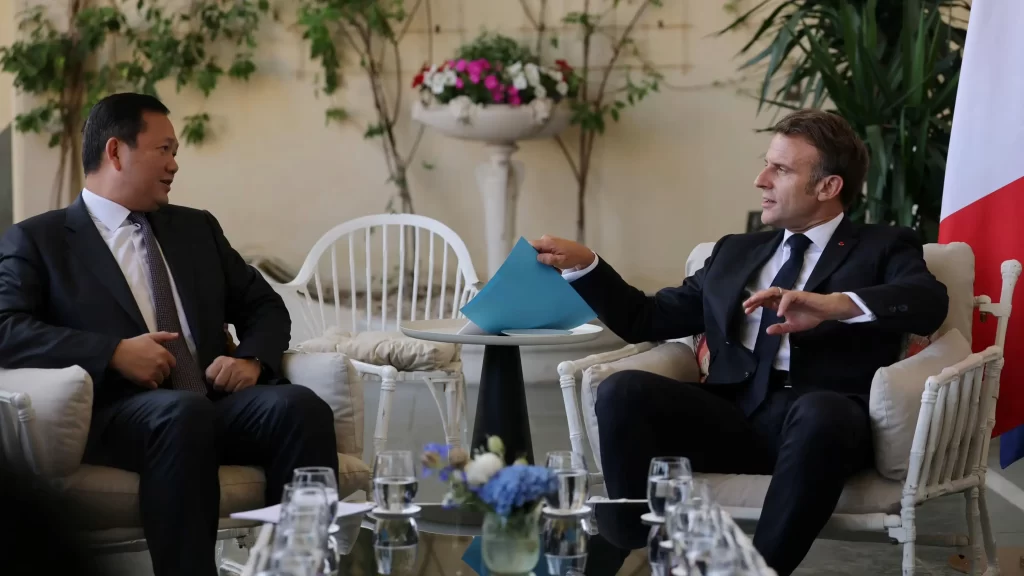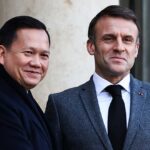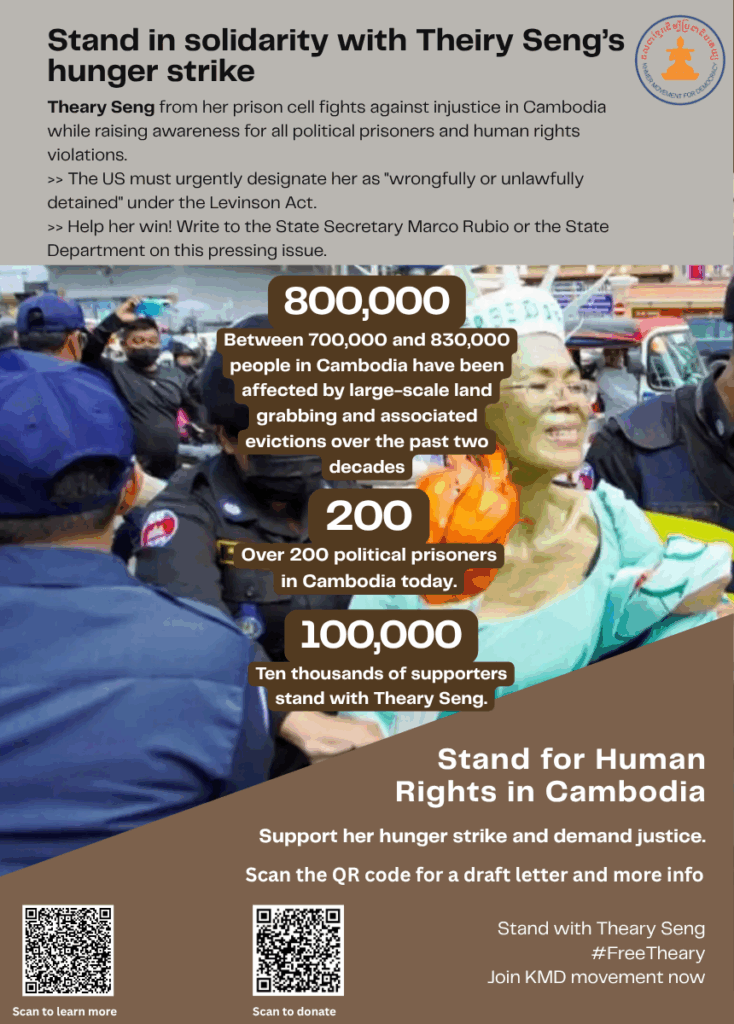Cambodia’s authoritarian drift under Hun Manet must be confronted
- admin
- 0 Comments
Young prime minister should be held to account at international forums
By Mu Sochua (on NIKKEI ASIA)
June 13, 2025
Mu Sochua, a former Cambodian politician and Nobel Peace Prize nominee, is president of the Khmer Movement for Democracy.
Last month, many Asia-Pacific leaders came to Tokyo for Nikkei’s Future of Asia 2025 forum. At the event, speakers discussed key issues facing the region including the ongoing conflict in Myanmar, economic resilience in the face of U.S. tariffs and shared security challenges. Its central ambition was to identify pathways towards deeper collaboration and prosperity at a time of global uncertainty.
One of the most anticipated speakers of this year’s gathering was Cambodian Prime Minister Hun Manet, who since succeeding his father in August 2023 has kept a conspicuously low profile on the international stage. In his speech, Hun Manet discussed “industrial recalibrations” in the face of shifting global trade networks — and spoke of his ambition of transitioning Cambodia’s economy away from low-cost, labor-intensive manufacturing to a more diversified, resilient and knowledge-based industrial structure.
Ostensibly, it was a welcome proposition, which landed well with the gathered attendees. However, the reality inside Cambodia continues to point to a very different trajectory, and a failure on the part of Hun Manet to address a number of millstones to economic development, including burgeoning cybercrime networks, government-level corruption, democratic backsliding and a disregard for the rule of law.
Hun Manet’s moderate persona and his talk of “safeguarding” the nature of Cambodia’s “hard-gained peace” appears to be a guise. His words, underpinned by his schooling at Bristol University and West Point, had aroused optimism in large parts of the international community that, under his rule, the regime in Cambodia would shift track — and that a reversal of the repressive policies toward independent journalists, civil society, unions and opposition parties during his father’s era could be possible. Even now, there remains baseless hope that under a younger, more internationally-minded new leader, Cambodia will pivot away from an inward-looking policy agenda and build-out alliances on the world stage.
Evidence from the past 18 months, however, suggests anything but a more open Cambodia.
Instead of halting the country’s slide into authoritarianism, Hun Manet has expedited it and dragged our country further into the orbit of Beijing. Quick to state Cambodia’s “peace above all else” approach in his speech, he failed to address the attacks on dissidents, the banning of opposition groups, the shuttering of independent media and the arrest of journalists — including award winning reporter Mech Dara — for reporting on human rights abuses and cybercrime. At the beginning of 2025, former opposition MP Lim Kimya was assassinated on the streets of Bangkok in what rights groups called “a significant escalation in the use of transnational repression.” Far from turning the tide of authoritarianism, Hun Manet has doubled-down on his father’s legacy.
His vision, as spelled out in Tokyo, was one of smoke and mirrors. Instead of pursuing alliance-building, for the greater good, the Cambodian premier is actively undermining the security of the Asia-Pacific region with his actions.
It is telling that China has been the principal beneficiary of Hun Manet’s rule. Cambodia received $1.3 billion in foreign direct investment from Beijing in 2024, in support of an array of projects, including the controversial Dara Sakor resort and the 500 “ghost buildings” of unfinished housing development across Sihanoukville. Cambodians themselves have seen no economic benefit to this — indeed, in almost all cases projects have been fulfilled entirely by Chinese labor.

Cambodian Prime Minister Hun Manet, left, and French President Emmanuel Macron attend a bilateral meeting in Nice, France, on June 10. © Reuters
Military relations between Cambodia and China have also deepened, to the alarm of neighbors. The two countries have undertaken large-scale joint exercises in the South China Sea and collaborated on the development of the Funan Techo Canal, which will run the length of Cambodia and give the Chinese army the ability to encircle Vietnam.
This makes Cambodia an outlier compared to other Asia-Pacific nations. While much of the region has embraced transparency and openness — Singapore abandoning dynastic succession, Malaysia holding free elections, the Philippines pursuing accountability through the International Criminal Court, South Korea impeaching a president, Bangladeshis fighting for freedom, Indonesia solidifying its democracy, Thailand returning to a democratic system and Japan serving as a democratic example — the regime in Phnom Penh has embarked on a path of self-interest that risks regional stability.
This is what made Hun Manet’s appearance in Tokyo so significant. It presented an opportunity not to embolden a young, currently wayward, new leader, but a platform to confront and dissect the behavior of his regime. There were those who stood strong, including brave members of the Khmer diaspora who protested his arrival and pan-Asian inaction on cybercrime, despite the dangers this presents to their families in Cambodia. However, few inside the forum challenged Hun Manet’s disregard of the Cambodian constitution and international law. It was also revealing that he refused to field questions from the attending media.
While the event was a missed opportunity to push for important reforms, there will be subsequent forums where Hun Manet and his actions can, and should, be held to account. With guidance from democratic leaders in the Asia-Pacific, Cambodia can strike a different path; one which prioritizes a diversification of its economic and security arrangements while upholding constitutional democratic requirements. Hun Manet can spearhead this process, but to do so he will need encouragement and support to pull his regime away from its dependency on China and help ensure that human rights and the interests of Cambodians are prioritized after decades of neglect.
Such actions would be a victory for the entire region — and, ultimately, restore the belief that Cambodia can, again, become an open, flourishing democracy.

